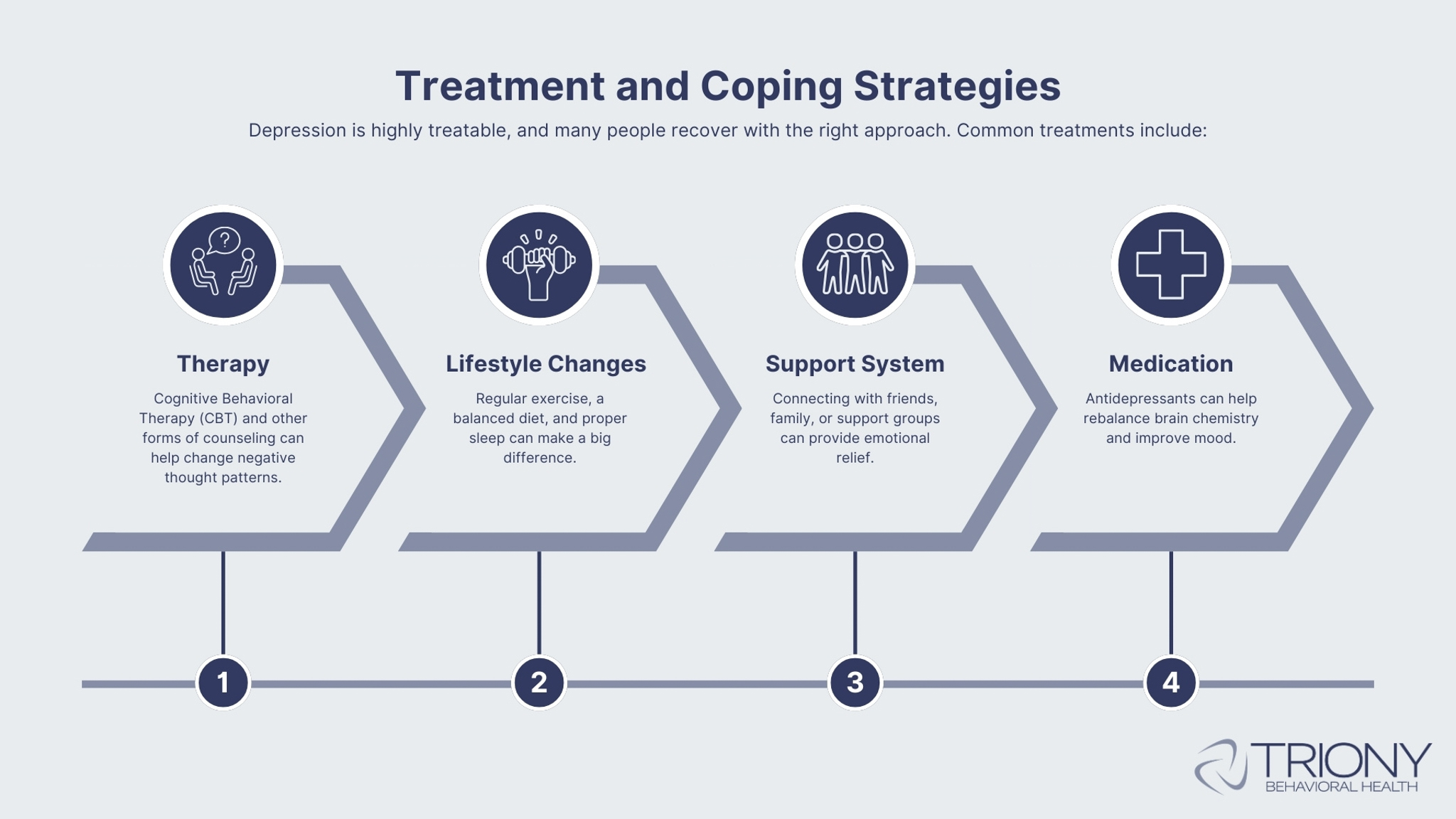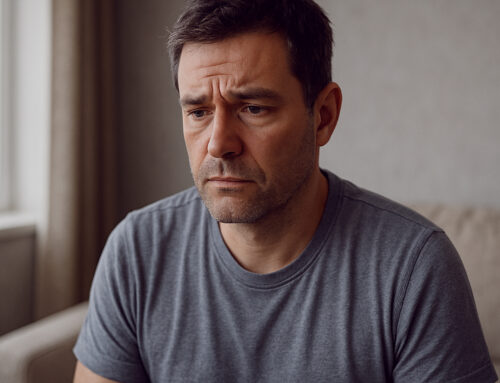Understanding Depression: More Than Just Sadness
Depression isn’t just about feeling sad—it can affect your thoughts, behavior, and even your physical health. It’s a serious mental health condition that can make everyday life feel overwhelming. Some people experience it as numbness, while others feel constant frustration or exhaustion.
The good news? Depression is treatable. But recognizing the signs is the first step toward getting help. Let’s break down the behavioral, emotional, and physical symptoms of depression so you can better understand what’s happening—whether it’s for yourself or someone you care about.
Behavioral Symptoms of Depression
Depression often changes how people behave, sometimes in ways they don’t even realize. Some common behavioral signs include:
- Withdrawing from social activities – Avoiding friends, family, or activities you once enjoyed.
- Struggling at work or school – Finding it hard to focus, meet deadlines, or stay motivated.
- Loss of interest in hobbies – Things that used to bring joy might now feel meaningless.
- Increased reliance on alcohol or sedatives – Using substances to escape emotional pain.
If you notice these patterns in yourself or someone else, it might be a sign that depression is taking hold.
Emotional Symptoms of Depression
The emotional impact of depression can be intense and persistent. Some of the most common emotional symptoms include:
- Persistent sadness or emptiness – Feeling down for weeks or months without relief.
- Guilt and self-blame – Constantly feeling like a burden or thinking you’ve failed.
- Irritability and frustration – Small problems feel huge, leading to sudden anger or impatience.
- Lack of confidence and motivation – Simple decisions feel overwhelming, and self-doubt takes over.
- Feeling worthless or hopeless – A sense that nothing will ever get better.
These emotions don’t just come and go—they linger, making it difficult to see a way forward.
Physical Symptoms of Depression
Depression isn’t just mental—it takes a toll on the body, too. Some of the most noticeable physical symptoms include:
- Chronic fatigue and low energy – Even small tasks feel exhausting.
- Sleep disturbances – Insomnia or oversleeping can disrupt daily life.
- Appetite changes and weight fluctuations – Eating much more or much less than usual.
- Unexplained aches and pains – Headaches, muscle pain, or digestive issues with no clear cause.
These physical symptoms can sometimes be mistaken for other health problems, which is why proper diagnosis is crucial.
When to Seek Help for Depression
It’s normal to have bad days, but if these symptoms persist most of the day, nearly every day, for two weeks or more, it’s time to reach out for help. Depression can make it feel like things will never improve, but with the right support, recovery is possible.
Here’s when to seek professional help:
- When depression interferes with work, school, or relationships.
- When you experience thoughts of self-harm or suicide.
- When everyday tasks feel impossible to manage.
Screening tools can provide insight into your symptoms, but a conversation with a mental health professional is the best way to get a proper diagnosis.

Treatment and Coping Strategies
Depression is highly treatable, and many people recover with the right approach. Common treatments include:
- Therapy – Cognitive Behavioral Therapy (CBT) and other forms of counseling can help change negative thought patterns.
- Lifestyle changes – Regular exercise, a balanced diet, and proper sleep can make a big difference.
- Building a support system – Connecting with friends, family, or support groups can provide emotional relief.
- Medication – Antidepressants can help rebalance brain chemistry and improve mood.
No single treatment works for everyone, but a combination of these approaches often leads to significant improvement.
Final Thoughts: You’re Not Alone
Depression can feel isolating, but you are not alone. Millions of people experience it, and help is available. If you or someone you love is struggling, don’t hesitate to seek support. Taking that first step—whether it’s talking to a friend, seeing a doctor, or calling a helpline—can be life-changing.
At Triony Behavioral Health, we’re here to help. Call 1-888-689-1432 to speak with a professional who understands what you’re going through. There is hope, and recovery is possible.
Schedule consultation
Building a Foundation of Trust and Support
"In the midst of chaos, there is also opportunity." At the core of our services lies a deep commitment to creating a safe, supportive environment. We believe that a strong support system is crucial for healing and growth. Our team of compassionate professionals is dedicated to walking alongside you, offering guidance and understanding at every step of your journey.





